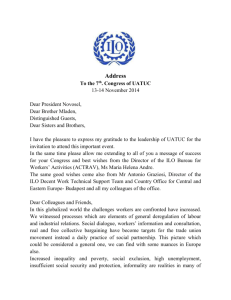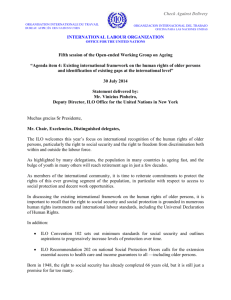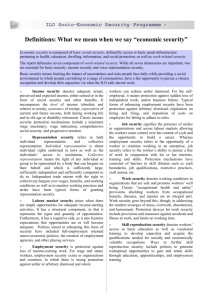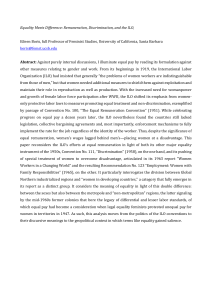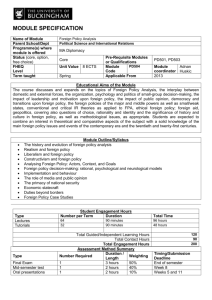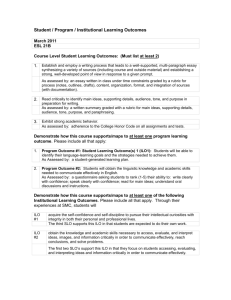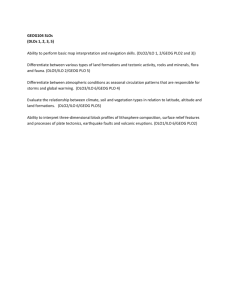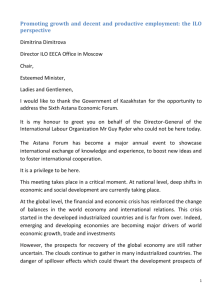20150105 ILO PR-Cambodia garment wage
advertisement
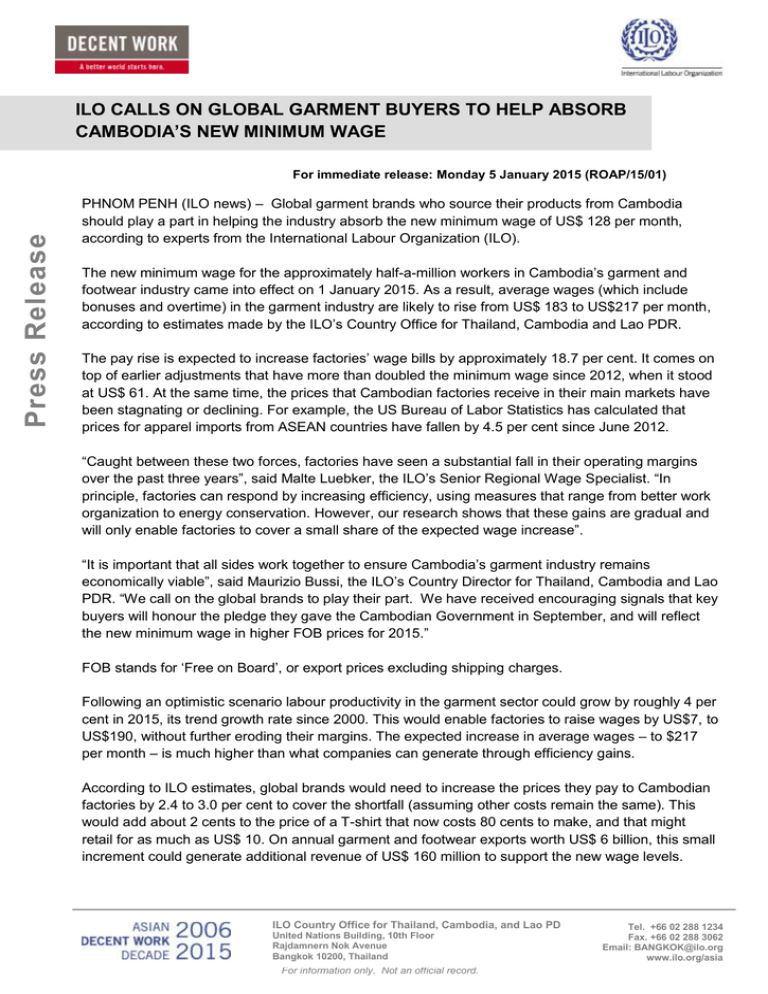
ILO CALLS ON GLOBAL GARMENT BUYERS TO HELP ABSORB CAMBODIA’S NEW MINIMUM WAGE Press Release For immediate release: Monday 5 January 2015 (ROAP/15/01) PHNOM PENH (ILO news) – Global garment brands who source their products from Cambodia should play a part in helping the industry absorb the new minimum wage of US$ 128 per month, according to experts from the International Labour Organization (ILO). The new minimum wage for the approximately half-a-million workers in Cambodia’s garment and footwear industry came into effect on 1 January 2015. As a result, average wages (which include bonuses and overtime) in the garment industry are likely to rise from US$ 183 to US$217 per month, according to estimates made by the ILO’s Country Office for Thailand, Cambodia and Lao PDR. The pay rise is expected to increase factories’ wage bills by approximately 18.7 per cent. It comes on top of earlier adjustments that have more than doubled the minimum wage since 2012, when it stood at US$ 61. At the same time, the prices that Cambodian factories receive in their main markets have been stagnating or declining. For example, the US Bureau of Labor Statistics has calculated that prices for apparel imports from ASEAN countries have fallen by 4.5 per cent since June 2012. “Caught between these two forces, factories have seen a substantial fall in their operating margins over the past three years”, said Malte Luebker, the ILO’s Senior Regional Wage Specialist. “In principle, factories can respond by increasing efficiency, using measures that range from better work organization to energy conservation. However, our research shows that these gains are gradual and will only enable factories to cover a small share of the expected wage increase”. “It is important that all sides work together to ensure Cambodia’s garment industry remains economically viable”, said Maurizio Bussi, the ILO’s Country Director for Thailand, Cambodia and Lao PDR. “We call on the global brands to play their part. We have received encouraging signals that key buyers will honour the pledge they gave the Cambodian Government in September, and will reflect the new minimum wage in higher FOB prices for 2015.” FOB stands for ‘Free on Board’, or export prices excluding shipping charges. Following an optimistic scenario labour productivity in the garment sector could grow by roughly 4 per cent in 2015, its trend growth rate since 2000. This would enable factories to raise wages by US$7, to US$190, without further eroding their margins. The expected increase in average wages – to $217 per month – is much higher than what companies can generate through efficiency gains. According to ILO estimates, global brands would need to increase the prices they pay to Cambodian factories by 2.4 to 3.0 per cent to cover the shortfall (assuming other costs remain the same). This would add about 2 cents to the price of a T-shirt that now costs 80 cents to make, and that might retail for as much as US$ 10. On annual garment and footwear exports worth US$ 6 billion, this small increment could generate additional revenue of US$ 160 million to support the new wage levels. ILO Country Office for Thailand, Cambodia, and Lao PDR United Nations Building, 10th Floor Rajdamnern Nok Avenue Bangkok 10200, Thailand For information only. Not an official record. Tel. +66 02 288 1234 Fax. +66 02 288 3062 Email: BANGKOK@ilo.org www.ilo.org/asia The ILO estimates are based on an analysis of the detailed payroll records of more than 1300 workers. The sample includes production line workers, who on average earned US$ 176 per month in 2014 (including allowances, skill bonuses and overtime payments), although one in five were paid US$ 145 or less. By contrast, office workers such as accountants earn much higher wages, explaining the ILO’s higher estimate for the industry’s average wages across all occupations. The wage data refer to an average workweek of almost 60 hours. After taxes and other deductions, the take-home pay that workers receive is lower than the gross wage that companies pay. Factories also pay an additional 0.8 per cent of the total salary to the National Social Security Fund (NSSF). The ILO also used data from Cambodia’s Ministry of Commerce and the National Institute of Statistics when modelling the impact of the minimum wage increase on FOB prices. For more information please contact: Sophorn Tun National Coordinator in Cambodia ILO Office for Cambodia tun@ilo.org T: +855 (0)23 220 817 Sophy Fisher Senior Communication & Public Information Officer ILO Regional Office for Asia and the Pacific fisher@ilo.org T: + 66(0) 2288 2482
